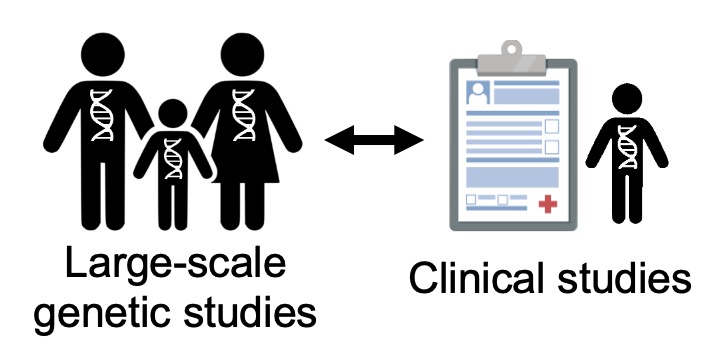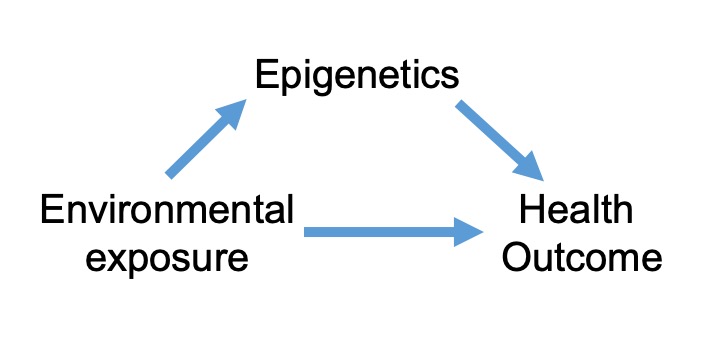Our lab aims to understand the genetic etiology and epidemiology of mental and behavioral disorders through machine learning and statistical approaches, and translate our findings to facilitate early diagnosis, advance personalized medical treatments, and mitigate stigma and health disparities.

Synergizing Large-Scale Genetic and Clinical Data for Personalized Medicine in Mental Health
While large-scale genetics studies provide a wealth of genetic and phenotypic data from thousands to millions of subjects, their clinical counterparts—though smaller in scale—offer invaluable depth through detailed mental and behavioral assessments, neuroimaging, and longitudinal observations.
Our lab employs a bidirectional approach using novel machine learning and statistical tools: First, we leverage findings from large-scale genetic studies to inform and enhance clinical practices such as early diagnosis and tailored treatments in autism and neurodevelopmental disorders. Second, we use detailed health information from clinical studies to refine and enrich the phenotype assessments in these large-scale studies. This two-way exchange of information fast-tracks progress in personalized medicine.

Epigenetic Links Between Environment and Mental Health
Environment factors influence mental and behavioral disorders, often through changes that sit 'on top' of our DNA, known as epigenetics. These epigenetic modifications, such as DNA methylation or histone modification, alter gene activity without changing the underlying DNA sequence.
Our lab aims to identify specific epigenetic changes linked to mental and behavioral disorders, develop predictive biomarkers through machine learning, and explore how they act as mediator between what we're exposed to in our environment and our mental health.

